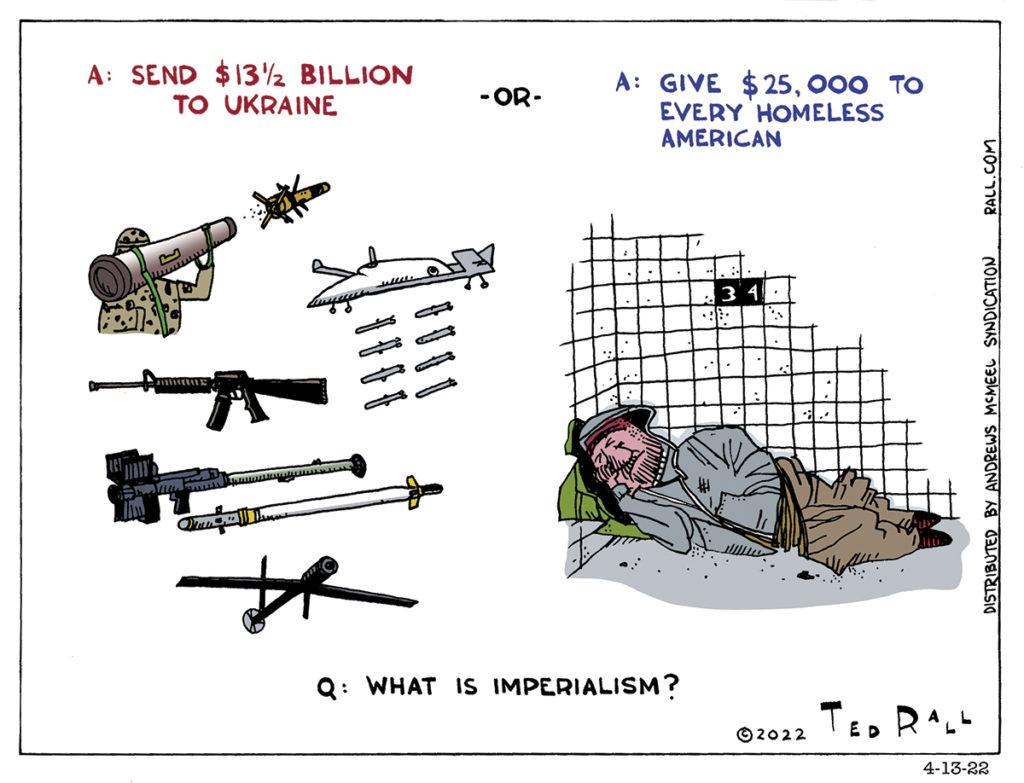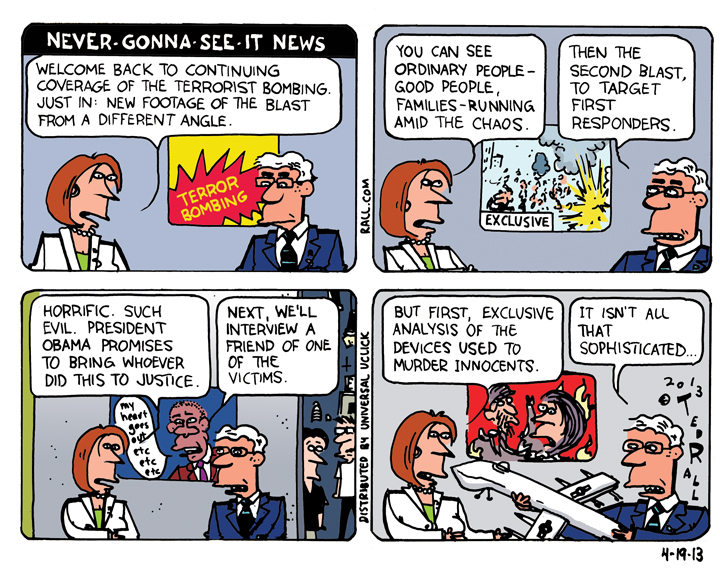After many epic controversies in American presidential politics, this is what we have finally come down to: as much as we dislike the party that we are voting for, we despise the party that we are voting against even more.
SYNDICATED COLUMN: Teddy Roosevelt Saw This Coming
The Decline and Fall of an American Icon
Why did our political system become so corrupt and unresponsive? How did we end up with such a rigid, Old European-style class system—in which you can’t get ahead unless you were born that way? America: What Went Wrong?, a 1992 paperback by Donald L. Barlett and James B. Steele, went a long way toward answering those questions.
It may be, however, that America was doomed long before then.
The historian Edmund Morris recently published the final entry of a magisterial trilogy about the life of Theodore Roosevelt. Though frequently listed among the greatest American politicians today, TR was an “accidental president” who ascended to power thanks to the murder of William McKinley. His blustery and impolitic style—his supporters called it speaking truth to power—would never have allowed him to win a presidential election.
Roosevelt sussed out the perils of unregulated capitalism early on. “The great corporations which we have grown to speak of rather loosely as trusts are the creatures of the State, and the State not only has the right to control them wherever need of such control is shown but it is in duty bound to control them,” he said in 1901.
No president since Nixon has followed TR’s advice. The result of unbridled corporate corruption is disparity of wealth worse than much of the Third World, and 20 percent unemployment.
Morris’ book Colonel Roosevelt addresses TR’s life after leaving the presidency in 1909: his 1912 run as on the independent Bull Moose ticket, his disastrous expedition through the Amazon, and finally the decline of this legendary dynamo after the start of World War I reordered the international landscape and doomed him to political irrelevance: a career bookended by assassins’ bullets.
Few presidents are as revered by both the left and the right. Liberals love TR for his record as an environmentalist and trust-buster. Conservatives like his unapologetic imperialism: the American empire as we know it began with Roosevelt.
Although it describes events that took place a century ago, this new biography shines light on many of the systemic ills that afflict the United States today.
On the domestic front it is brutally disheartening to read that even a figure as historically transcendent and contemporaneously popular as Theodore Roosevelt found it impossible to break the lock of the two major parties on the political process. As schoolchildren learn, the Bull Moose Party marks the apex of third party attempts in presidential politics. In 1912 it was an empty farce.
Along with their allied press barons, the Republican and Democratic Party machines blocked the charismatic (albeit longwinded) ex-Rough Rider every step of the way, rendering Roosevelt’s third-party defeat as much of a foregone conclusion as Nader’s.
During the Bull Moose run Roosevelt was shot at close range as he arrived for a campaign appearance in Milwaukee. The bullet, slowed by the printed text of the 50-page speech folded over in his jacket pocket, had nevertheless “pinked” the former president.
Morris’ description of TR’s grace under fire inspires awe: “Don’t hurt him. Bring him here,” Roosevelt shouted to men restraining his would-be assassin as he hoisted himself to his feet.
“Let’s go the hospital,” urged an aide.
“You get me to that speech,” Roosevelt replied, Morris says, “with a savage rasp to his voice.”
“[The bullet wound] was a ragged, dime-sized hole, bleeding slowly, about an inch below and to the right of his right nipple. The bullet was nowhere to be seen or palpated. The whole right side of his body had turned black,” Morris writes.
TR took the podium. “It takes more than that to kill a bull moose,” he said, going on to speak for an hour and fifteen minutes.
We have lost so much. Contrast TR’s courageous performance after being shot to our so-called “leaders.” On 9/11 George W. Bush abandoned Washington, fleeing into internal exile, hopscotching the nation like a coward before slinking back to the capital half a day later.
Roosevelt spent his last years hurling scathing critiques of Woodrow Wilson’s reluctance to enter World War I on the side of Britain and France. Nearly 100 years ago, however, the bellicose Roosevelt harbored no proto-neocon-like delusions about American exceptionalism—the nauseating combination of high-blown rhetoric and gutter-rat real-world actions that characterizes foreign policy of the United States and sparks outrage around the globe.
“He scoffed at the hypocrisy of Wilson’s grand-sounding phrase ‘self-determination for all peoples’ [in Wilson’s Fourteen Points], noting that the President was in no hurry to grant liberty to Haiti or Santo Domingo.” Both were under U.S. military occupation.
Were such self-awareness in greater supply in the U.S. today, we might not be fighting wars of aggression on three fronts at the same time we’re lecturing other countries about sovereignty and human rights.
Roosevelt’s martial spirit was his blind spot.
Unlike most Americans today, he had served valiantly. His bravery was unquestioned. One of his greatest disappointments was Wilson’s refusal to allow him to fight in the Great War.
Despite his experience in battle TR shared with today’s armchair “support our troops” “U-S-A” warriors an excess of willingness to send others to face shells and poison gas—without fully internalizing the consequences.
Despite being sidelined, Roosevelt pushed his sons to enlist and get to the fighting. Then his son Quentin, a pilot, got shot down. “Quentin’s mother and I are very glad that he got to the Front and had a chance to render some service to his country, and to show the stuff there was in him before his fate befell him,” he told the press.
But the cold reality of Quentin’s permanent absence marked the beginning of the end of a man known for his vigor. “The old side of him is gone, the old exuberance, the boy in him has died,” a friend noted the day after he learned of his son’s death. “I am not what I was,” TR confessed to his sister.
Two years later Roosevelt was dead, a victim of the American militarism he extolled and symbolized.
(Ted Rall is the author of “The Anti-American Manifesto.” His website is tedrall.com.)
COPYRIGHT 2011 TED RALL
SYNDICATED COLUMN: America Against the People
Why Is Obama Coddling Egyptian Dictator?
Here is Egypt, America’s neo-con dream come true. Democracy! In the Middle East! And it isn’t costing us a single soldier. You’d think American policy makers would be pleased as punch. So why are they messing it up?
At first glance the uprising in Cairo and other Egyptian cities puts the United States in an awkward spot. We’ve propped up Hosni Mubarak for three decades. If we cut him loose, our other pet dictators will stop trusting us. If we don’t, all that yapping about democracy and freedom rings hollow. Which do we choose, our purported principles or our actual allies?
Actually, it’s not that hard. We lost the trust of our puppet tyrants when Saddam dropped through the trap door. We lost the people with a zillion CIA-backed coups, not to mention the $37 billion we’ve paid to Mubarak. The dictator’s wealth is estimated at $40 billion. That’s right: no one dime of U.S. foreign aid made it to the Egyptian people.
The Obama Administration has an easy way out. They can disavow the policies of the past 30 years, policies they merely inherited. The president can make a clean break, announcing that he is cutting off U.S. funding to the Mubarak regime until things settle down. Then shut up.
Simple. Yet the president is handling this Middle Eastern crisis with all the class and diplomacy of a George W. Bush.
There’s the arrogance. On Fox News he agreed with Bill O’Reilly that he doesn’t want the Muslim Brotherhood to take over. “I want a representative government in Egypt,” Obama said. Dude, it doesn’t matter what you want or what we want. What matters is what the Egyptians want.
There’s the shortsightedness. Like previous presidents, Obama doesn’t understand that repression isn’t a synonym for stability.
There’s the failure to recognize the broader implications. Hated for Egypt’s joint blockade with Israel of the Gaza strip, Mubarak is viewed throughout the Muslim world as the embodiment of American-funded corruption. Obama’s refusal to cut him loose fuels radical Islamists’ argument that the U.S. will never allow the Palestinians to live with dignity.
Last but not least, there’s that classic Cold War-era mistake: backing the wrong side. In this case, Mubarak’s new vice president Omar Suleiman. Since 1993 Suleiman has run Egypt’s feared Mukhabarat intelligence agency. He is Egypt’s chief torturer.
As head of the General Intelligence Directorate Suleiman was the Bush Administration’s main liaison and coordinator for its “extraordinary rendition” program. Victims of extraordinary rendition are kidnapped by CIA agents and illegally transferred to other countries for the purpose of being tortured.
According to experts on the war on terror, Suleiman is a torturer’s torturer, a hard man who sets a high bar—from which he hangs his bleeding victims. Personally.
One of the CIA’s victims was Mamdouh Habib, an Egyptian-born Australian citizen. U.S. agents bought him from Pakistani intelligence and shipped him to Egypt. “In Egypt,” reports Lisa Hajjar for Al Jazeera, “he was repeatedly subjected to electric shocks, immersed in water up to his nostrils and beaten. His fingers were broken and he was hung from metal hooks. At one point, his interrogator slapped him so hard that his blindfold was dislodged, revealing the identity of his tormentor: Suleiman. Frustrated that Habib was not providing useful information or confessing to involvement in terrorism, Suleiman ordered a guard to murder a shackled prisoner in front of Habib, which he did with a vicious karate kick.”
Ibn al-Sheikh al-Libi was a former trainer in the Afghan jihadi camps who famously “confessed” a connection between Saddam and Al Qaeda while under torture in one of Suleiman’s dungeons. Colin Powell cited al-Libi’s “information” in his 2003 speech of lies to the U.N. arguing for war against Iraq.
Note the word “was.” Al-Libi died in a Libyan prison in 2009.
Evan Kohlmann, a terrorism analyst for NBC News, cites a classified source: “Al-Libi’s death coincided with the first visit by Egypt’s spymaster Omar Suleiman to Tripoli. “The Egyptians were embarrassed by this admission [that he had lied under torture…Omar Suleiman saw an opportunity to get even with al-Libi and traveled to Tripoli. By the time Omar Suleiman’s plane left Tripoli, Ibn al-Sheikh al-Libi had committed ‘suicide’.”
Suleiman’s fearsome resume may come as a surprise to you. But Egyptians know all about him. Headlines like ” Obama Backs Suleiman – Led Transition ” (from the New York Times) aren’t making us more popular.
(Ted Rall is the author of “The Anti-American Manifesto.” His website is tedrall.com.)
COPYRIGHT 2011 TED RALL





